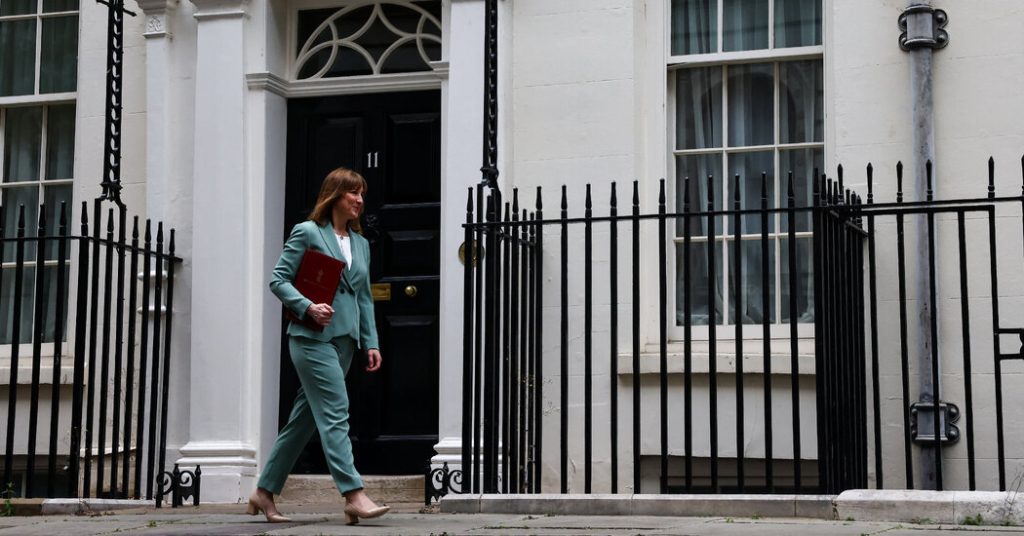The British government announced on Wednesday hundreds of billions of pounds in spending on defense, health care and investment in infrastructure and housing, as it laid out its economic priorities for the next few years.
Rachel Reeves, the chancellor of the Exchequer, presented a breakdown of the public finances in Parliament, detailing how much money each government department will have to spend until 2029, around the time of the next general election. It brings to an end months on tense negotiations between Ms. Reeves and other ministers as she seeks to balance competing priorities and navigate economic challenges at home and abroad.
“We are renewing Britain,” Ms. Reeves told lawmakers. “But I know that too many people in too many parts of our country are yet to feel it.”
The multiyear spending review is the clearest signal yet of how the government will fulfill its top mission to increase economic growth. It follows announcements in recent days to spend heavily to improve local public transport, construct a nuclear power plant and build more affordable housing.
A vow to ‘fix the foundations’
When the Labour Party came to power less than a year ago, they inherited an economy under serious stress. Public services were struggling, with long wait lists for medical appointments; productivity growth had been stagnant for more than a decade; and recent tax cuts put the public finances under strain. The bond market revolt over former Prime Minister Liz Truss’s spending and tax plans was still fresh in people’s minds.
The government under Prime Minister Keir Starmer has sought to “fix the foundations” of the economy and focus on big longer-term changes, such as updating the planning system for development and investing in cheaper energy generation.
But the government’s plans have been repeatedly overshadowed by economic turmoil from the United States. President Trump’s tariffs have sent shock waves around the world and ushered in warnings of a global economic slowdown. At the same time, Mr. Trump has suggested that his administration’s support for arming Ukraine against Russia could waver and has pushed European governments to substantially increase spending on their militaries, squeezing budgets.
The country was bolstered by unexpectedly strong economic growth at the start of the year, and the International Monetary Fund recently upgraded its forecast for Britain’s economy this year, predicting 1.2 percent growth. But there are still concerns about how to lift Britain’s longer-term growth potential, which has been stubbornly low since the 2008 financial crisis.
An increase in military spending
One of the top priorities in the spending review was steering more money to defense, after the government’s pledge to increase military spending, to 2.5 percent in two years and 3 percent after that, as a share of gross domestic product.
That will lead to an £11 billion increase in military spending, and £600 million for security and intelligence agencies, Ms. Reeves said.
It represent a pivotal change: For more than half a century, the British government, alongside others in Europe, have spent less on defense and, instead, generously funneled money into health care and welfare, a so-called peace dividend. Now, amid Russian aggression, that era is over.
And there is pressure to spend even more. Mark Rutte, secretary general of NATO, is pushing members to commit to spend 5 percent of their gross domestic product on defense.
Protecting funds for health care
But even as military spending increases, there is little room to pull back on funding for health care, the government’s biggest department. Amid the pressures of an aging society and more people not working and claiming sickness benefits, the British government has protected spending on its National Health Service, which will get the biggest increase of any department.
In England, the health service’s budget for day-to-day expenses will increase an average of £29 billion a year to 2029.
“The funding increases for health and defense are substantial,” said Paul Johnson, the director of the Institute for Fiscal Studies. “The corollary, of course, is a less generous settlement elsewhere.”
Other departments, such as the home office, foreign office, culture department, environment and food department, face a squeeze. Spending on schools, after the cost of expanding free school meals, will also be tight.
Providing more cash for investments
Because of a change in the fiscal rules Ms. Reeves made last year, she unlocked an additional £113 billion for capital investments, laying out plans to invest more than £15 billion in public transport networks, £39 billion over 10 years on affordable housing and £30 billion to a “nuclear-powered future.”
“I have made my choices,” Ms. Reeves said to lawmakers. “In place of chaos, I choose stability. In place of decline, I choose investment. In place of pessimism, division and defeatism, I choose national renewal.”


